Nigeria
-
Nigeria
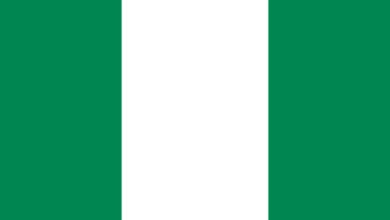
The National Flag of Nigeria
The Nigerian flag, designed by Michael Taiwo Akinkunmi, was officially adopted at midnight on October 1, 1960, signifying the nation’s independence. Akinkunmi’s design emerged victorious from a nationwide open contest organized by the government, where over three thousand entries were submitted. The flag features a vertical bicolour design of green and white. The green symbolizes agriculture, while the white represents peace and unity. In a ceremonial event, Lieutenant David Ejoor…
-
National Anthems

Arise, O Compatriots
The national anthem of Nigeria, “Arise, O Compatriots,” was written by the Nigerian poet, actor, and playwright Felicia Hemans. It was adopted as the official anthem in 1978, replacing the previous anthem “Nigeria, We Hail Thee.” The anthem reflects the aspirations, unity, and patriotic spirit of the Nigerian people. It encourages citizens to respond to the call of the nation and serve it with love, strength, and faith. The lyrics…
-
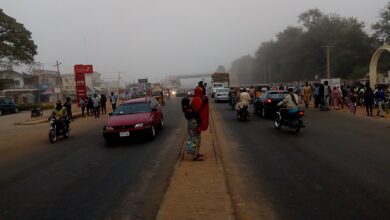
Zaria
Zaria, situated in the north-central region of Nigeria within Kaduna state, is a city positioned along the Kubanni River, a tributary of the Kaduna River. It functions as the central hub for the Zaria Local Government Council and the traditional Zaria emirate. The city, accessible by road, rail, and a nearby airport to the northwest, comprises distinct areas, including the ancient walled town, Tudun Wada, Sabon Gari, and a township…
-
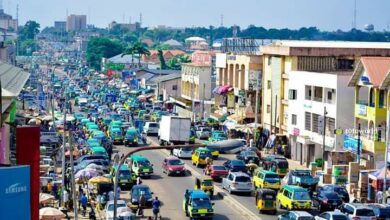
Kaduna
Kaduna, situated in north-central Nigeria, is the capital city of Kaduna state. It is positioned along the Kaduna River, a significant tributary of the Niger River. In 1913, Sir Frederick (later Lord) Lugard, the inaugural British governor of Northern Nigeria, chose the current site along the Lagos-Kano Railway for the establishment of a town. Construction commenced, and by 1917, Kaduna, meaning “crocodiles” in Hausa, replaced Zungeru as the capital of…
-
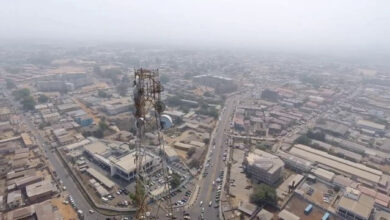
Ilorin
Ilorin, a city in western Nigeria, serves as the traditional emirate and is the capital of Kwara state. Positioned along the Awun River, a minor tributary of the Niger, it was founded in the late 18th century by the Yoruba people. Originally part of the Oyo empire as a vassal state, Ilorin saw a rebellion in 1817 led by Kakanfo Afonja, Oyo’s commander, resulting in the dissolution of the empire’s…
-
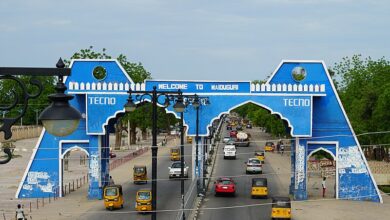
Maiduguri
Maiduguri serves as the capital and largest city of Borno state in northeastern Nigeria. Positioned along the seasonal Ngadda (Alo) River, this city is situated near the firki (“black cotton”) swamps of Lake Chad, northeast of Maiduguri. The present-day Maiduguri comprises the twin towns of Yerwa and Maiduguri. Yerwa, founded in 1907 on the site of Kalwa hamlet, became the new traditional capital of the Kanuri people, replacing Kukawa. Concurrently,…
-
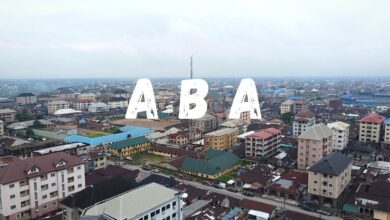
Aba
Aba is a city in Abia State, South East Nigeria, and also the commercial centre of Abia State. Aba is well known for its craftsmen and is also the most populous city in South Eastern Nigeria. In 2016, Aba boasted an estimated population of 2.5 million and covered an area of 72 km². Predominantly inhabited by the Igbo ethnic group, which constitutes 95% of its population, Aba is situated in the southeastern…
-
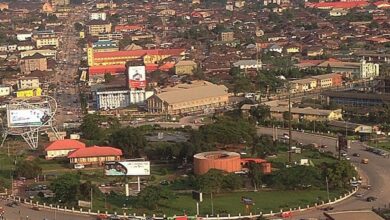
Benin City
Benin serves as the capital city of Edo state, situated in southern Nigeria, approximately 40 kilometres north of the Benin River. This city stands at the heart of Nigeria’s rubber industry and is a significant oil producer. It also holds historical significance as the former centre of the Edo kingdom before it fell under Portuguese capture. Renowned for its rich cultural heritage, Benin is particularly famous for its bronze sculptures…
-
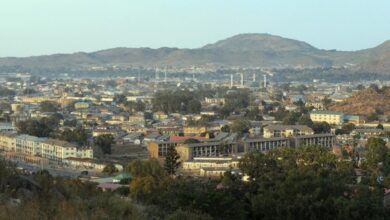
Jos
Jos is the capital city of Plateau state, situated on the Jos Plateau at an elevation of 4,250 feet (1,295 meters) in central Nigeria. It is positioned along the Delimi River and in proximity to the source of the Jamaari River, known as the Bunga downstream. Originally, the area was occupied by Geash, a village of the Birom people. The town experienced rapid development after the British discovered substantial tin…
-

Kano
Kano is the capital of Kano state in northern Nigeria, situated along the Jakara River. Founded by a blacksmith named Kano, the site shows evidence of prehistoric settlement. It became the capital of the Hausa state in the 12th century, and construction of the famous city wall, which is over 12 miles long, began during that time. The city played a crucial role in trans-Saharan trade, particularly after becoming the…